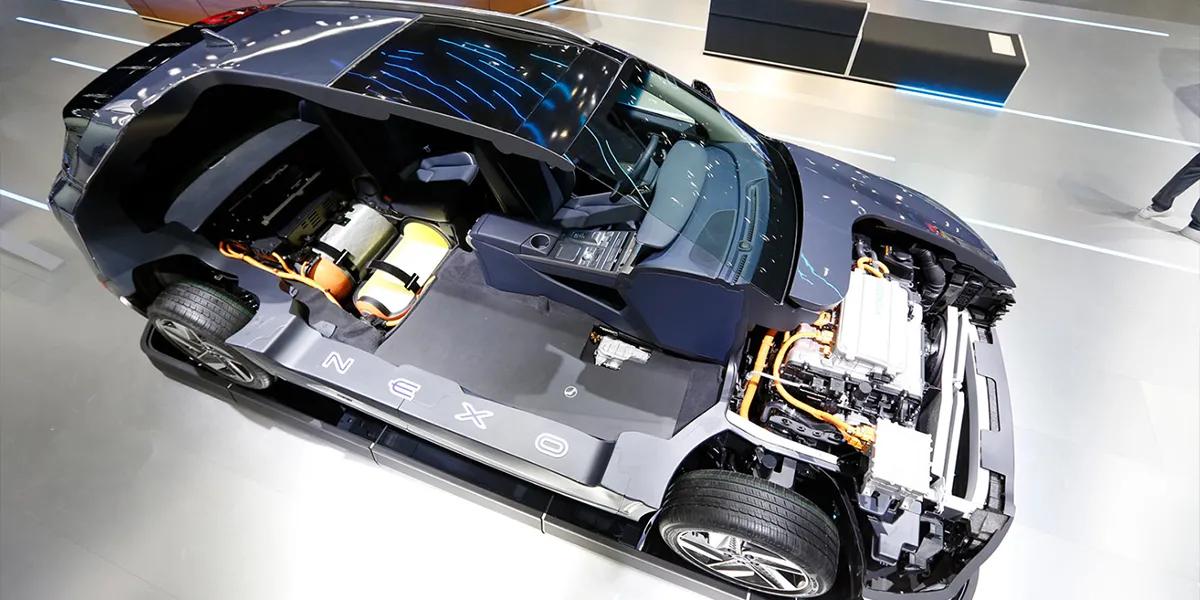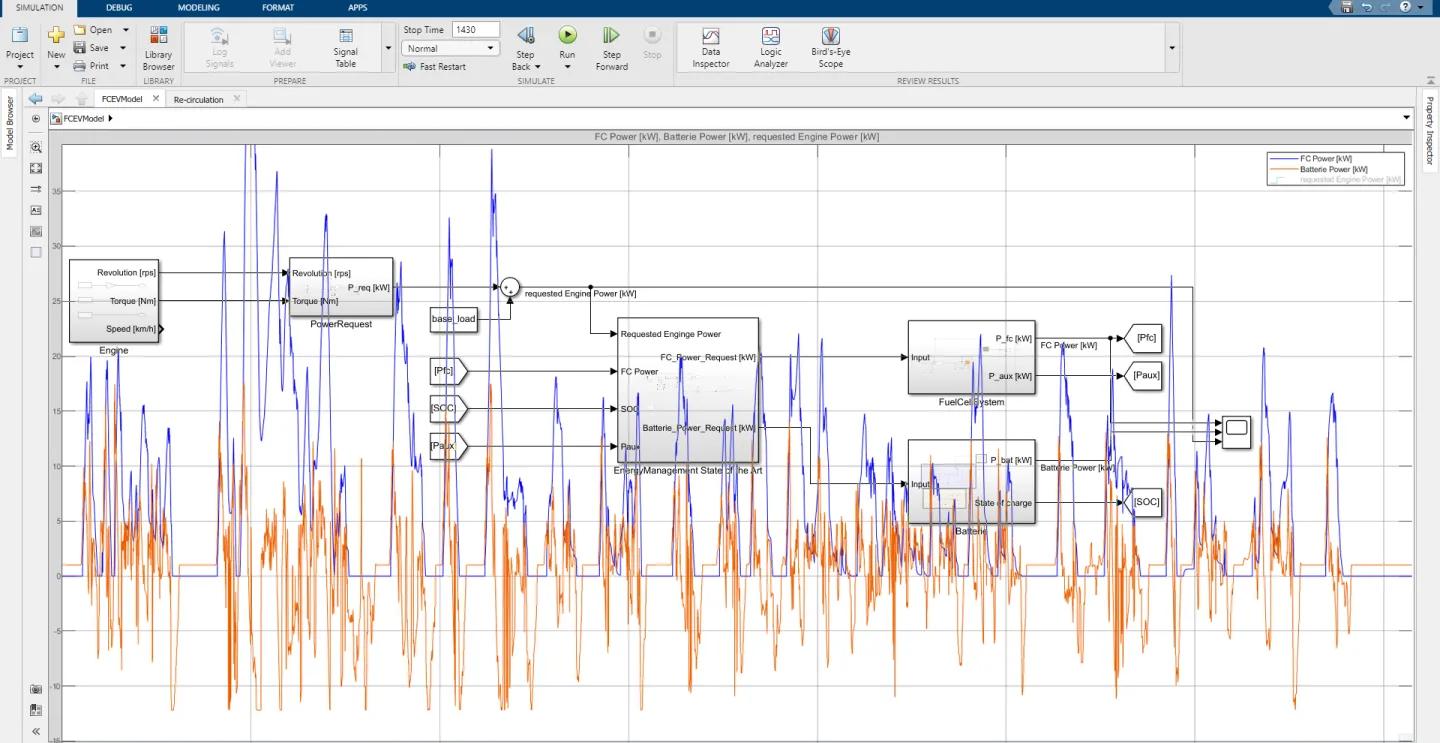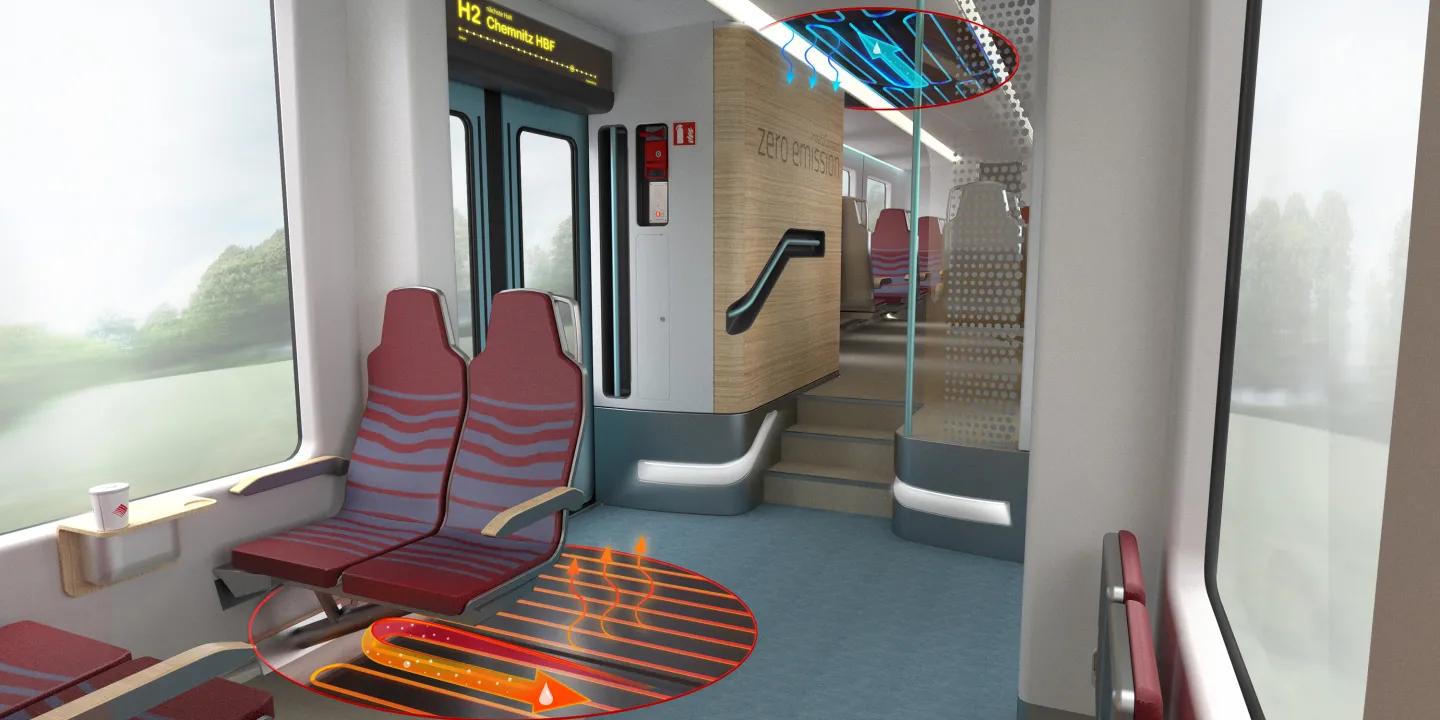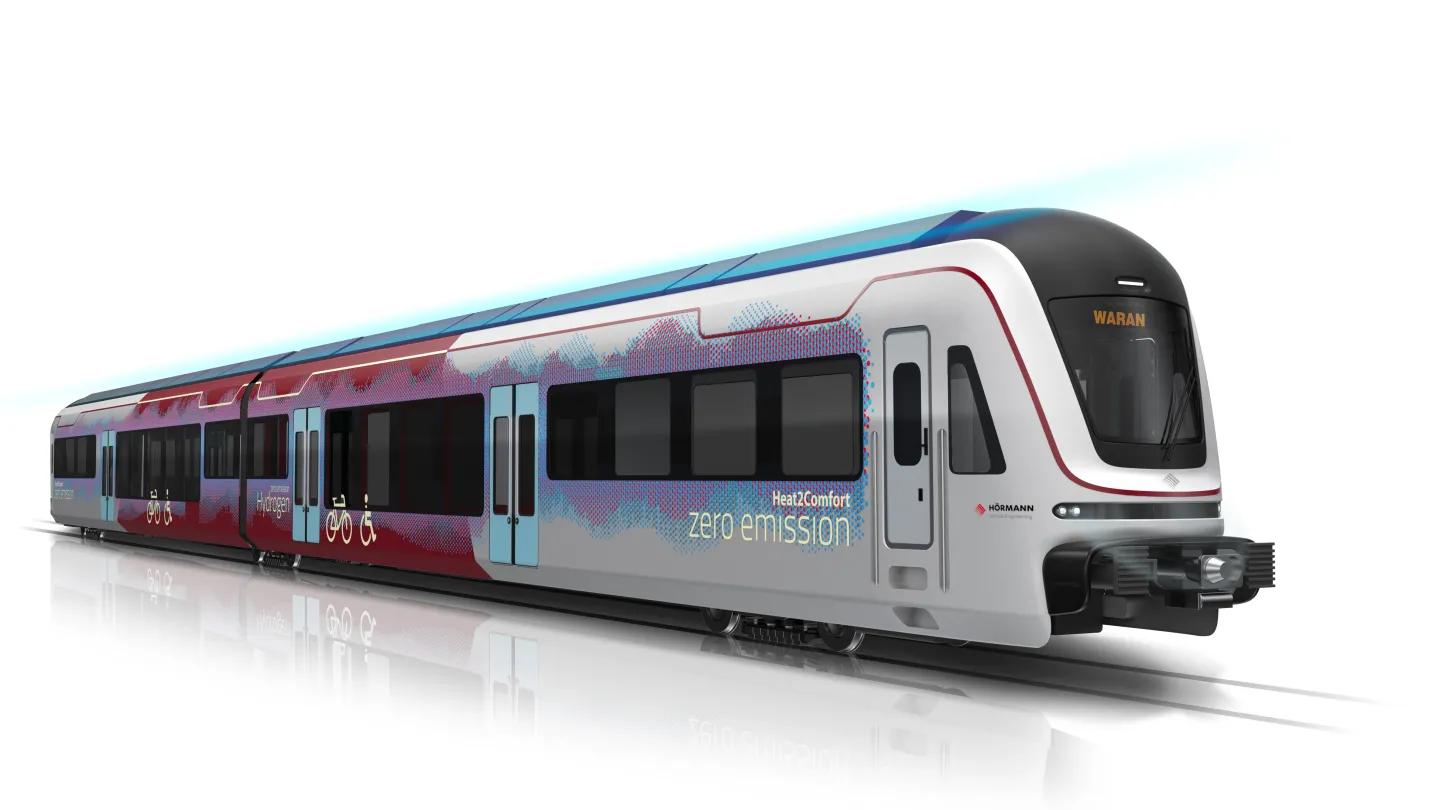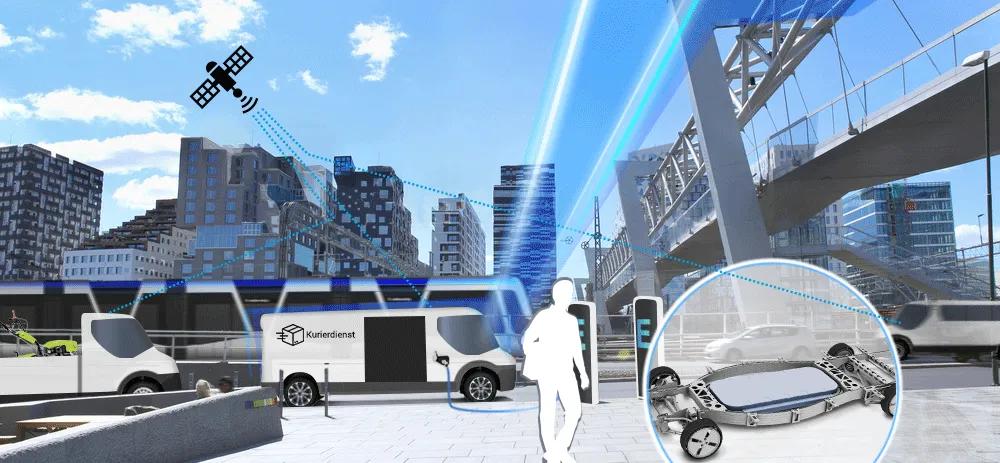
Alternative Drive Systems
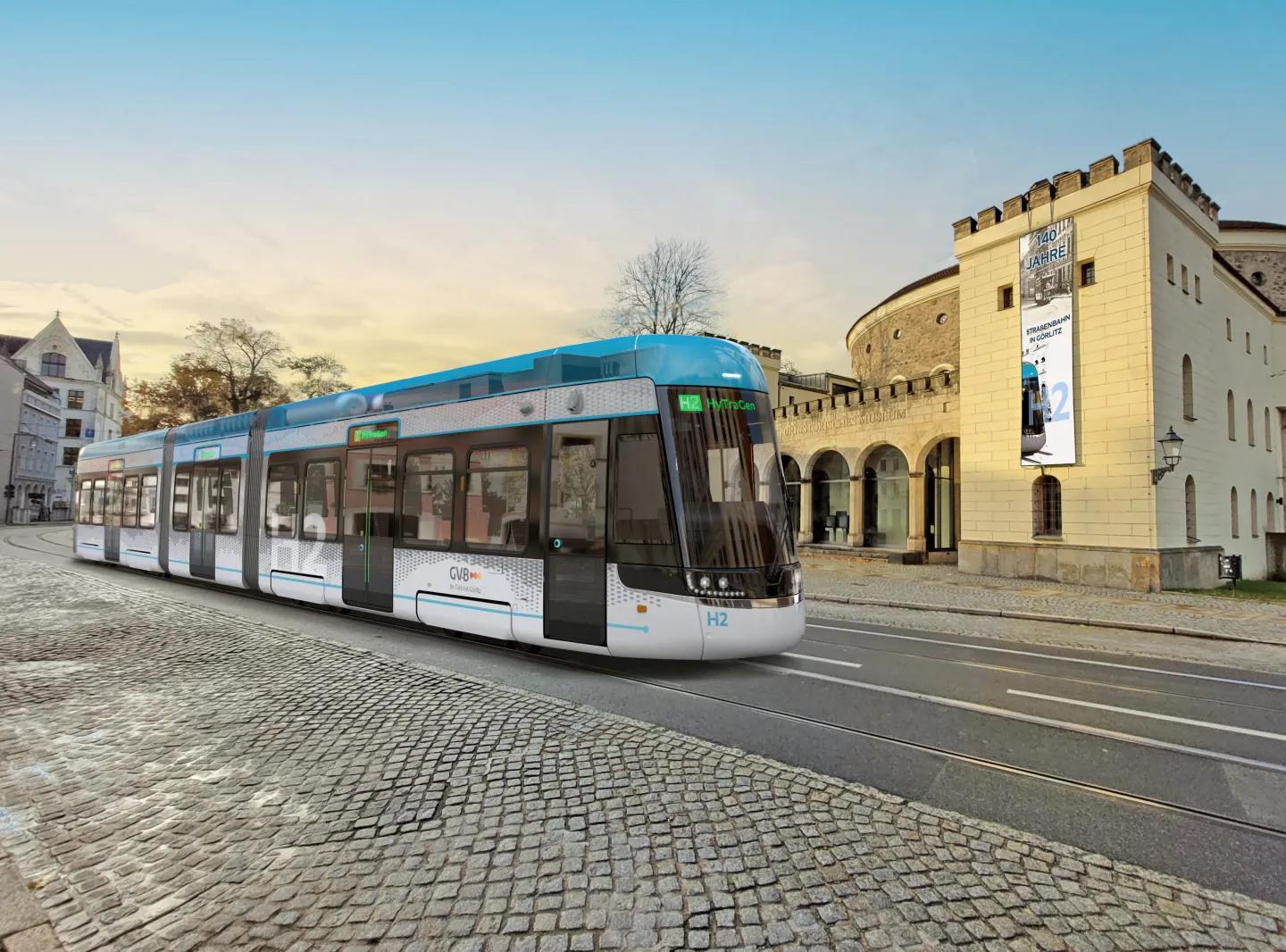
HyTraGen
Hydrogen-Tram for next Generation - Realisierung eines mit Wasserstoff betriebenen Straßenbahnprototyps
Projektzeitraum: Dez 2023- Nov 2026 | Projektpartner: HeiterBlick GmbH, Flexiva Automation & Robotik GmbH, Technische Universität Chemnitz, Görlitzer Verkehrsbetriebe GmbH (assoziiert), Leipziger Verkehrsbetrieb GmbH (assoziiert), CVAG – Chemnitzer Verkehrs – Aktiengesellschaft (assoziiert)
Mit den Projektpartnern wird in dem sächsischen Konsortium Europas erste Straßenbahn mit Wasserstoffantrieb entwickelt und gebaut. Die Erprobung der Straßenbahn erfolgt in Zusammenarbeit mit den Görlitzer Verkehrsbetrieben (GVB). Gefördert wird das Projekt durch das Bundesministerium für Verkehr und Digitales innerhalb des Programmes für „Nationales Innovationsprogramm Wasserstoff- und Brennstoffzellentechnologie Phase 2 (NIP II)“.
Als Fortführung des F&E – Projektes „H2-TRAM“ werden die erlangten Forschungsergebnisse und die neuartigen Systemlösungen in einen prototypischen Versuchsträger überführt. Der Prototyp wird in Leipzig bei der HeiterBlick GmbH gefertigt und anschließend im Betriebsumfeld der GVB getestet. Neben der Validierung der technischen Lösungen und der Funktionalität des Gesamtfahrzeuges, werden auch die Voraussetzungen geschaffen zukünftig BZ – Straßenbahnen einfacher zuzulassen und kostengünstiger zu fertigen.
Die Wasserstoffstraßenbahn sollte dabei nicht in direkter Konkurrenz zu vorhanden Oberleitungsbahnen stehen, sondern vielmehr eine Alternative für neue Strecken darstellen, welche aus ökonomischen, ökologischen und städtebaulichen Gründen nicht mit Oberleitungen ausgerüstet werden können. Ein weiterer positiver Aspekt ist der Wegfall von hohen Infrastrukturkosten für Installation und Wartung der Oberleitung. In einem ganzheitlichen Wasserstoffkonzept mit einer Vielzahl von unterschiedlichen Verbrauchern würde für die nutzenden Städte zudem ein weiteres Energieversorgungssystem entstehen, das nicht netzabhängig ist und überschüssige Elektroenergie in Form von Wasserstoff speichern kann.
Gefördert durch:

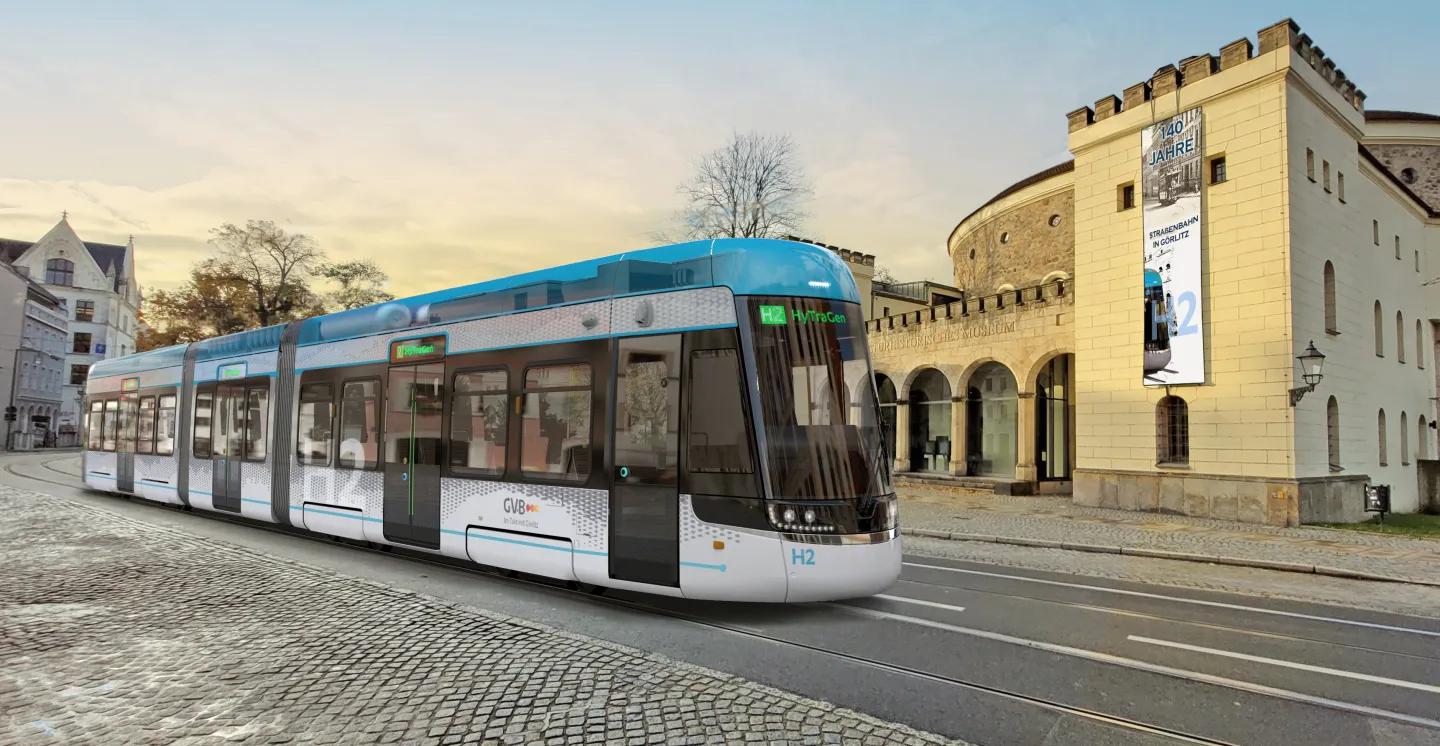
HyTraGen
Hydrogen-Tram for next Generation - Realisierung eines mit Wasserstoff betriebenen Straßenbahnprototyps
Projektzeitraum: Dez 2023- Nov 2026 | Projektpartner: HeiterBlick GmbH, Flexiva Automation & Robotik GmbH, Technische Universität Chemnitz, Görlitzer Verkehrsbetriebe GmbH (assoziiert), Leipziger Verkehrsbetrieb GmbH (assoziiert), CVAG – Chemnitzer Verkehrs – Aktiengesellschaft (assoziiert)
Mit den Projektpartnern wird in dem sächsischen Konsortium Europas erste Straßenbahn mit Wasserstoffantrieb entwickelt und gebaut. Die Erprobung der Straßenbahn erfolgt in Zusammenarbeit mit den Görlitzer Verkehrsbetrieben (GVB). Gefördert wird das Projekt durch das Bundesministerium für Verkehr und Digitales innerhalb des Programmes für „Nationales Innovationsprogramm Wasserstoff- und Brennstoffzellentechnologie Phase 2 (NIP II)“.
Als Fortführung des F&E – Projektes „H2-TRAM“ werden die erlangten Forschungsergebnisse und die neuartigen Systemlösungen in einen prototypischen Versuchsträger überführt. Der Prototyp wird in Leipzig bei der HeiterBlick GmbH gefertigt und anschließend im Betriebsumfeld der GVB getestet. Neben der Validierung der technischen Lösungen und der Funktionalität des Gesamtfahrzeuges, werden auch die Voraussetzungen geschaffen zukünftig BZ – Straßenbahnen einfacher zuzulassen und kostengünstiger zu fertigen.
Die Wasserstoffstraßenbahn sollte dabei nicht in direkter Konkurrenz zu vorhanden Oberleitungsbahnen stehen, sondern vielmehr eine Alternative für neue Strecken darstellen, welche aus ökonomischen, ökologischen und städtebaulichen Gründen nicht mit Oberleitungen ausgerüstet werden können. Ein weiterer positiver Aspekt ist der Wegfall von hohen Infrastrukturkosten für Installation und Wartung der Oberleitung. In einem ganzheitlichen Wasserstoffkonzept mit einer Vielzahl von unterschiedlichen Verbrauchern würde für die nutzenden Städte zudem ein weiteres Energieversorgungssystem entstehen, das nicht netzabhängig ist und überschüssige Elektroenergie in Form von Wasserstoff speichern kann.
Gefördert durch:

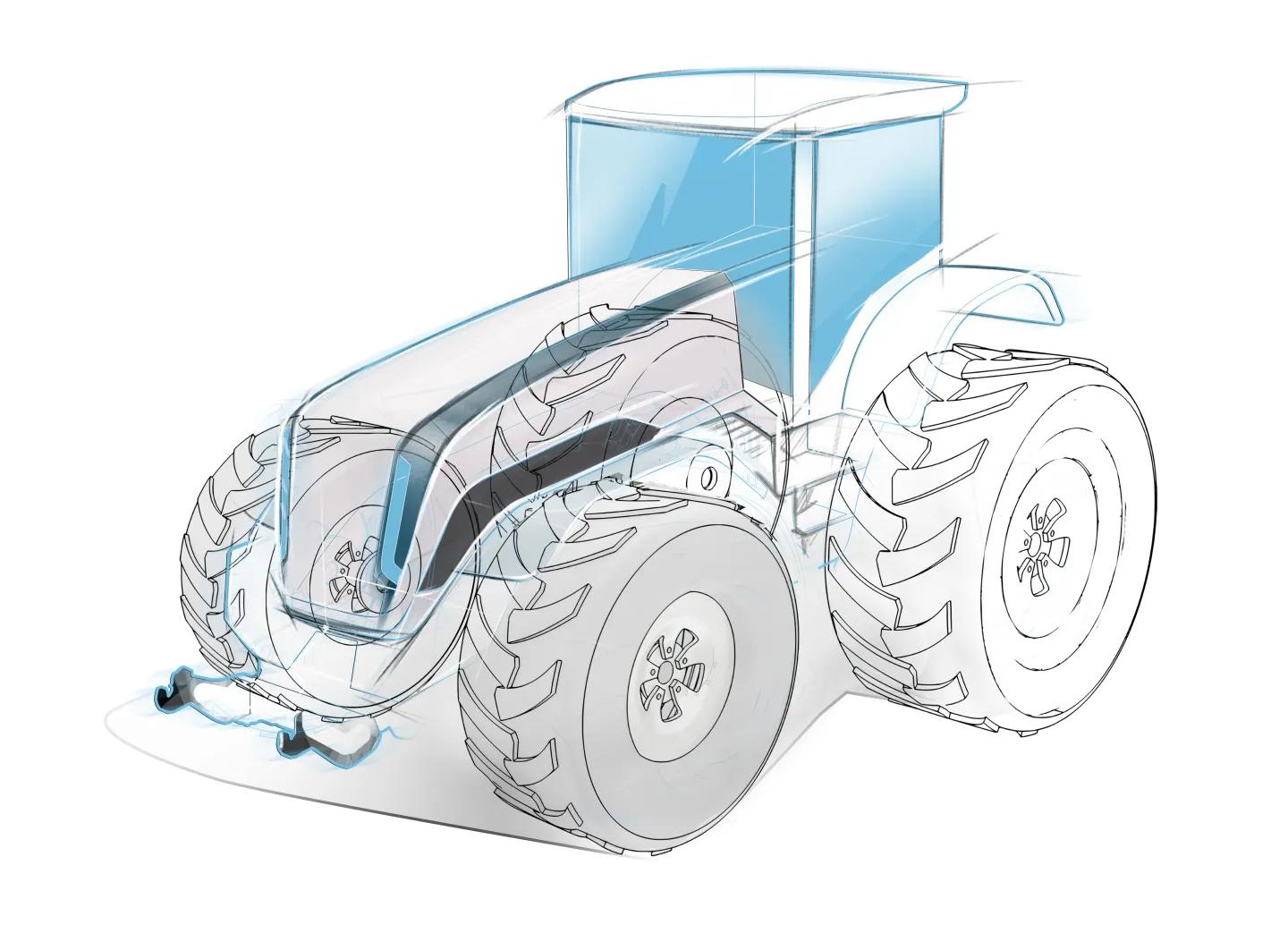
HZwo: RAHD
Wasserstoffspeicher- und Elektroantriebsfunktionslösung für schwere brennstoffzellenbetriebene Land- und Forstwirtschaftsfahrzeuge
Projektzeitraum: Sep 2023- Aug 2026 | Projektpartner: LSE-Lightweight Structures Engineering GmbH, EAAT GmbH Chemnitz, Technische Universität Chemnitz, Agraset Agrargenossenschaft eG (assoziiert), EIDAM Landtechnik GmbH (assoziiert)
Aktuelle Anwendungsfelder für Wasserstoffantriebslösungen beschränken auf klassische Fahrzeugtypen, wie LKW, Busse und andere Nutzfahrzeuge. Landwirtschaftliche Fahrzeuge und Maschinen finden in der aktuellen Diskussion wenig Beachtung. Vorhandene Fahrzeugflotten werden heute fast ausschließlich mit fossilen Kraftstoffen, meist Diesel, betrieben. Ein mittelgroßer Betrieb mit 12.000 kW Antriebsleistung in seinem Fuhrpark bringt es dabei auf einen jährlichen Kraftstoffverbrauch von rund 500.000 Litern. An dieser Stelle wird ersichtlich, dass auch in diesem Bereich gehandelt werden muss, um die zukünftigen Klimaziele zu erreichen. Das Forschungsvorhaben beschäftigt sich deshalb mit der Erarbeitung einer neuartigen Wasserstoffspeicher- und Antriebslösung für den Einsatz in landwirtschaftlichen Fahrzeugen. Damit soll es BSZ-Fahrzeugen möglich sein, leistungs- und reichenweitenadäquate Zielwerte der Dieselfahrzeuge zu erfüllen. Die neuartige Lösung soll grundlegend konzipiert und in ein Gesamtfahrzeugkonzept integriert werden. Des Weiteren wird durch den Aufbau eines skalierten Forschungsmodells die Funktionsweise validiert.
Gefördert durch:

Heat2Comfort
Waste heat-based air conditioning of fuel cell multiple units
Project period: Mar 2021 - Feb 2024 | Project partners: WätaS - Wärmetauscher Sachsen GmbH, ILK - Institut für Luft- und Kältetechnik Gemeinnützige Gesellschaft mbH, Fraunhofer Institute for Manufacturing Technology and Applied Materials Research, DB Systemtechnik GmbH (associated), EAW - Energieanlagenbau GmbH Westenfeld (associated).
The central starting point for waste heat utilization and energy savings is the thermal activation of components in the vehicle interior in order to use their radiation temperature to generate thermal comfort. This eliminates the need for energy-intensive overheating and undercooling of the supply air. The heating and cooling of the interior components is to be achieved using the waste heat from the fuel cell. A further point of research is the investigation of an energy-optimized heat transfer from the fuel cell to the interior in the case of heating operation. On the other hand, the power required for cooling down the interior components is to be generated with the help of the fuel cell waste heat. The fuel cell serves as the vehicle's primary energy conversion system for traction and auxiliary operations. Thus, the provision of waste heat cannot be primarily matched to the heat demand, which is why the integration of a thermal storage unit is necessary. Due to this novel air conditioning concept and the high degree of complexity, a novel control concept is to be implemented, which makes use of a large amount of environmental information and at the same time has a significantly higher number of manipulated variables than today's control algorithms. In addition, machine learning is to be used to enable continuous learning capability and thus optimization of the control software during operation.
supported by:
H2-Tram – completed research project
Innovative streetcars with fuel cell drive
Project period: Dec 2020 - Feb 2023 | Project partners: HeiterBlick GmbH, Flexiva Automation & Robotik GmbH, CVAG - Chemnitzer Verkehrs - Aktiengesellschaft (associated), AVG - Albtal-Verkehrs-Gesellschaft mbH (associated
The use of these novel fuel cell streetcars should enable public transport companies to connect new urban areas with rail vehicles in the future in a sustainable and pollution-free manner, independently of an existing traction power infrastructure, and to integrate them into existing transport hubs or mobility points to be established in the future.
The project was funded by: Federal Ministry for Digital and Transport, PtJ and NOW
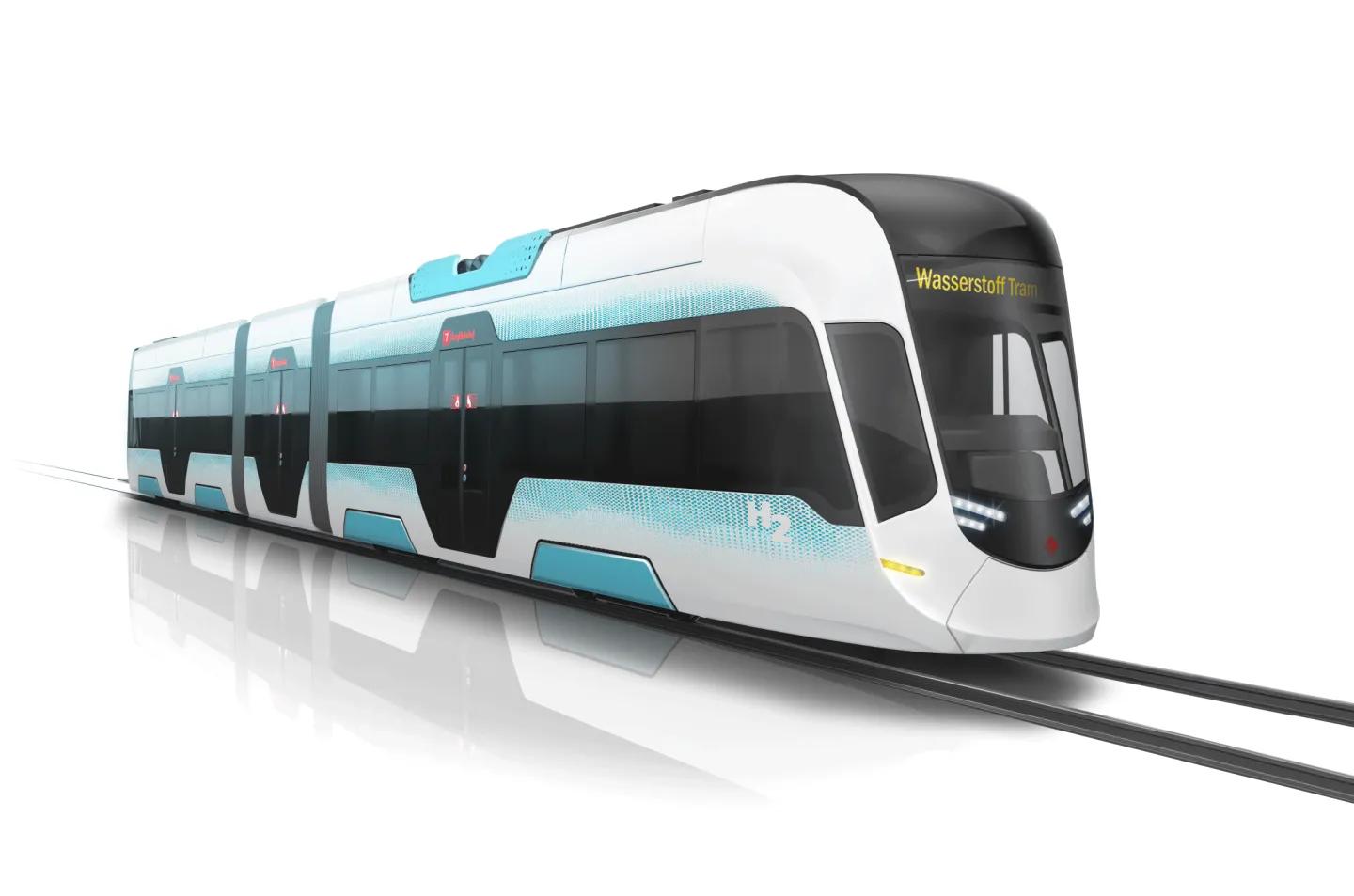
Gefördert durch:

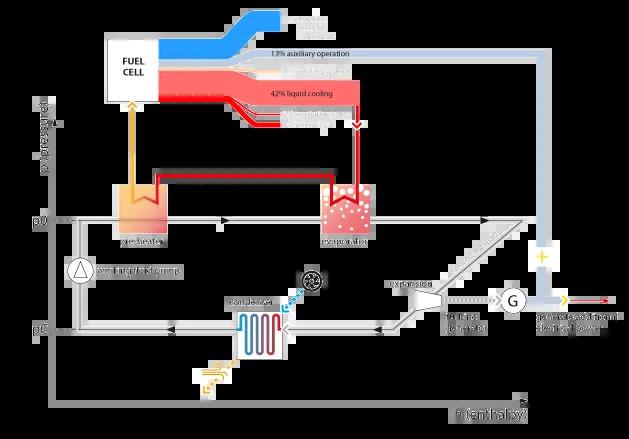
Heat2Power – completed research project
"Efficiency increase and waste heat - refinement for fuel cells in rail vehicles"
Project period: Dec 2019 - Oct 2022 | collaborative partners: WÄTAS and ILK Dresden
In the "Heat2Power" project, possibilities for minimizing the energy requirements of air-conditioning systems while maintaining consistently good passenger comfort are to be researched. At the same time, the connection to the fuel cell waste heat will be examined in order to identify potential savings and to evaluate structural adaptations (e.g. additional weight, space requirements, etc.). Additional thermal inertias and decentralized demand-based room conditioning will be investigated.
An essential approach is the refinement of the fuel cell waste heat by means of an energy conversion system into electrical power, in order to supply the accruing thermal power for the most universal use possible on the vehicle, independent of the respective vehicle air conditioning demand. Furthermore, the primary energy requirement for vehicle air conditioning is to be significantly reduced by coupling the fluctuating heat output of the fuel cell with the interior heating using a decentralized system of heat storage units and heat exchangers.
The project was funded by: ERDF and SAB
EcoCC – completed research project
Development of an economical and reliable measurement and control concept for automotive fuel cell systems
Project period: Jan 2019 - Dec 2021 | Partners: Continental, LSA, TU-Chemnitz, Fraunhofer IWU
As part of the HZwo initiative, the EcoCC project is concerned with the development of an economical and reliable measurement and control concept for low-temperature PEM fuel cells in automotive applications. A combination of data from existing, conventional sensors with dynamic models of control engineering allows improved condition monitoring of the system without the need to develop new and expensive hardware. Furthermore, such a mathematical and software-based approach offers the possibility to detect errors or to reconstruct missing data from other measurements. Thus, even existing sensors could potentially be replaced by virtual ones. Professor Streif, head of the Chair of Control Engineering and System Dynamics, therefore sees an enormous potential for cost savings as well as safer and more efficient operation of modern fuel cell systems in the "methods of control engineering and state estimation".
The project was funded by: ERDF and SAB
